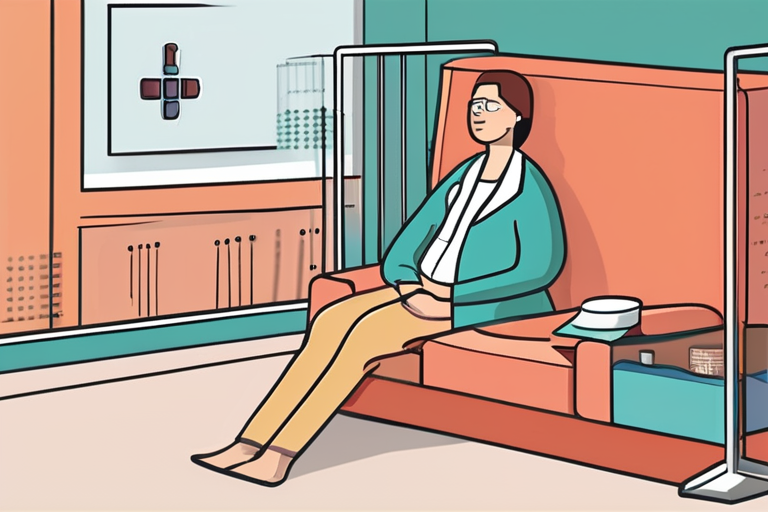Therapy May Be Most Effective Way to Ease Irritable Bowel Syndrome
A growing body of research suggests that therapy may be the most effective way to alleviate symptoms of irritable bowel syndrome (IBS), a condition characterized by bloating, diarrhea, constipation, and abdominal pain. According to a 2020 review published in the Journal of Clinical Gastroenterology, behavioral therapies such as cognitive behavioral therapy (CBT) may be more effective than routine care for managing IBS symptoms.
The review, led by researchers at the University of California, Los Angeles (UCLA), found that CBT and other behavioral therapies can help individuals with IBS change their thought patterns and behaviors to manage their symptoms. "Our study suggests that therapy can be a game-changer for people with IBS," said Dr. Emeran Mayer, lead author of the review. "By teaching patients how to manage stress and anxiety, we can reduce the frequency and severity of IBS symptoms."
IBS affects an estimated 10-15% of adults worldwide, making it one of the most common gastrointestinal disorders. While its causes are unclear, disordered gut-brain signaling is thought to play a major role. Gut infections or certain foods may trigger the gastrointestinal tract to send alarm signals to the brain, while psychological stress can send them in the opposite direction.
Traditional treatments for IBS include dietary advice and medications such as laxatives. However, these approaches often have limited success, particularly for individuals with persistent symptoms. In recent years, researchers have explored novel approaches such as fecal transplants, which involve transferring healthy gut bacteria from a donor to an individual with IBS. While promising, these treatments are still in their infancy and not widely available.
Behavioral therapies, on the other hand, offer a more accessible and cost-effective solution for managing IBS symptoms. "Therapy can be done digitally, making it easier for people to access and participate," said Dr. Mayer. "We're seeing promising results from online CBT programs that can be completed in just 10-15 minutes per day."
The implications of this research are significant, particularly for individuals with IBS who have struggled to find relief through traditional treatments. As researchers continue to explore the effectiveness of behavioral therapies, it's likely that we'll see a shift towards more holistic approaches to managing IBS symptoms.
In addition to CBT, other behavioral therapies such as acceptance and commitment therapy (ACT) and mindfulness-based stress reduction (MBSR) have shown promise in reducing IBS symptoms. These programs focus on teaching individuals how to manage stress and anxiety through relaxation techniques, self-awareness, and values-based action.
As the field of IBS research continues to evolve, it's clear that therapy will play a major role in alleviating symptoms for millions of people worldwide. With its accessibility, cost-effectiveness, and promising results, behavioral therapies offer a beacon of hope for individuals with IBS who have struggled to find relief through traditional treatments.
Background:
Irritable bowel syndrome (IBS) is a chronic gastrointestinal disorder characterized by bloating, diarrhea, constipation, and abdominal pain. While its causes are unclear, disordered gut-brain signaling is thought to play a major role.
Current Status:
Behavioral therapies such as CBT, ACT, and MBSR have shown promise in reducing IBS symptoms. Digital platforms offer an accessible and cost-effective solution for individuals with IBS.
Next Developments:
Researchers continue to explore the effectiveness of behavioral therapies for managing IBS symptoms. Future studies will focus on developing more targeted and personalized approaches to therapy.
*Reporting by Newscientist.*



 Hoppi
Hoppi

 Hoppi
Hoppi

 Hoppi
Hoppi

 Hoppi
Hoppi

 Hoppi
Hoppi

 Hoppi
Hoppi











